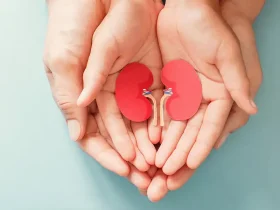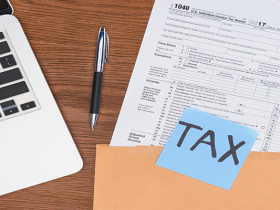As winter approaches, homeowners must turn their attention to preparing their homes for the colder months, especially when it comes to plumbing. In places like Santa Cruz, where December temperatures can fluctuate between the brisk 30s and a milder 40 to 50 degrees Fahrenheit, ensuring your home’s plumbing system is winter-ready is crucial. Cold weather can have a significant impact on pipes and plumbing systems, potentially leading to inconvenient and costly damages. To avoid such issues, certain areas of your home require specific plumbing attention before the onset of winter.
This article will highlight six key areas that homeowners should focus on to ensure their plumbing systems are adequately prepared for the winter season.
-
Insulating Pipes
Pipe insulation is a key preventive measure to protect your home’s plumbing during winter, especially in unheated areas like basements, attics, and garages. Insulation helps prevent pipes from freezing and bursting, a common and costly problem in colder months. Frozen pipes can lead to water pressure build-up, eventually causing the pipes to burst, leading to flooding and significant water damage.
There are various insulation options available, including foam tubing and fiberglass sleeves, which are easy to install and effective in keeping the pipes warm. Wrapping these insulations around the pipes provides a protective layer, reducing the chances of freezing. This simple step not only prevents potential water damage but also contributes to energy savings by reducing heat loss from the hot water pipes.
-
Water Heater Maintenance
One of the most critical components in your home during winter is the water heater. Ensuring that it is in optimal working condition is essential for a comfortable winter in Santa Cruz. That’s where seeking water heater repair services in Santa Cruz becomes vital. Regular maintenance and timely repairs can prevent common issues such as water temperature fluctuations, leaks, or complete breakdowns.
Winter puts additional strain on water heaters as they work harder to heat the cold water. Sediment build-up at the bottom of the tank can reduce the heater’s efficiency and lifespan. Professional services can address these issues by flushing the tank, checking for any wear and tear, and making necessary repairs. They can also inspect the heater’s elements and thermostats to ensure they are functioning correctly. This proactive approach not only ensures a steady supply of hot water but also helps in reducing energy costs and extending the life of your water heater.
-
Checking and Cleaning Gutters and Downspouts
The gutters and downspouts of your home play a crucial role in directing water away from your property, and their maintenance is essential before winter sets in. Clogged gutters can lead to water overflow, which may seep into your home and affect its foundation and plumbing system. Accumulated debris, such as leaves and twigs, can obstruct the flow of water, causing it to pool and potentially freeze, adding unnecessary weight and strain on the gutter system.
A thorough cleaning of gutters and downspouts in the fall can prevent these issues. Removing debris and ensuring clear pathways for water can protect your home’s exterior and foundation from water damage. Additionally, it’s advisable to check for any leaks or misalignments in the gutter system that may need repair. Ensuring your gutters and downspouts are in good working order is an essential step in winterizing your home’s plumbing system.
-
Servicing the Sump Pump
A sump pump is an essential component in many homes, especially those prone to basement flooding. Before winter arrives, it’s crucial to ensure that your sump pump is working correctly. Winter often brings increased rainfall or snowmelt, and the sump pump plays a vital role in preventing water accumulation and potential flooding in your home’s lower levels.
Servicing the sump pump involves checking its operation, which you can do by pouring water into the pit to see if it activates and releases water effectively. It’s also important to clear any debris from the sump pit and check the discharge line to ensure it’s not blocked or frozen. A professional inspection can be beneficial as experts can perform a comprehensive check, including testing the backup power source, if available. A well-functioning sump pump during winter not only protects your home from water damage but can also prevent long-term issues like mold growth and structural damage.
-
Sealing Leaks and Cracks
Leaks and cracks in plumbing fixtures can lead to significant problems during winter. The freezing temperatures can cause even small leaks to worsen, leading to burst pipes and extensive water damage. Before the cold season sets in, a thorough inspection of your home’s plumbing system to identify and seal any leaks is a wise preventive measure.
Areas to focus on include exposed pipes, under sinks, around toilets, and in basements or crawl spaces. Even minor leaks should be addressed promptly, as they can quickly escalate in cold weather. Sealing these leaks might involve tightening fittings or replacing worn-out parts like washers or seals. For cracks, appropriate waterproof sealants can be used to ensure a watertight seal. Addressing these issues before winter can save you from costly repairs and the inconvenience of dealing with plumbing emergencies during the cold months.
-
Preparing Outdoor Plumbing
Winterizing outdoor plumbing is essential to prevent pipes from freezing and bursting. This process involves draining and shutting off water to outdoor faucets, sprinkler systems, and garden hoses. Water left in pipes can freeze and expand, causing the pipes to crack or burst.
Start by turning off the water supply to outdoor faucets and draining them. Disconnect and drain garden hoses, storing them indoors if possible. For irrigation systems, professional blow-out services can ensure all water is removed from the pipes. Covering outdoor faucets with insulated covers provides additional protection against freezing temperatures. Taking these steps can prevent the inconvenience and expense of repairing outdoor plumbing damaged by winter weather.
Conclusion
Preparing your home’s plumbing system for winter is a crucial step in home maintenance that should not be overlooked. From ensuring your water heater is functioning efficiently to insulating pipes, cleaning gutters, servicing the sump pump, sealing leaks, and winterizing outdoor plumbing, each measure plays an important role in safeguarding your home against the challenges of cold weather. By taking these proactive steps, you can enjoy the winter months with the peace of mind that your home is well-protected against plumbing emergencies.










